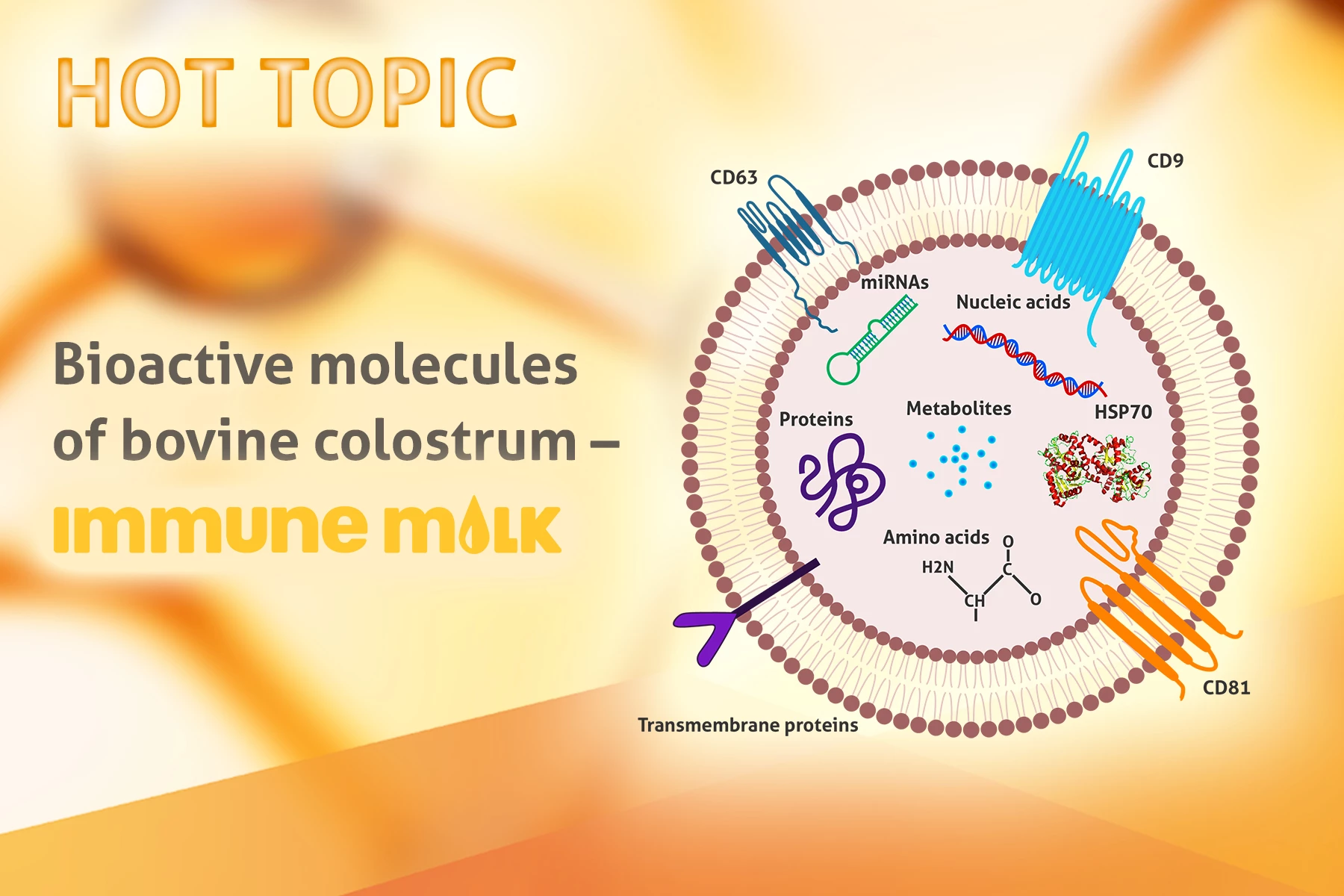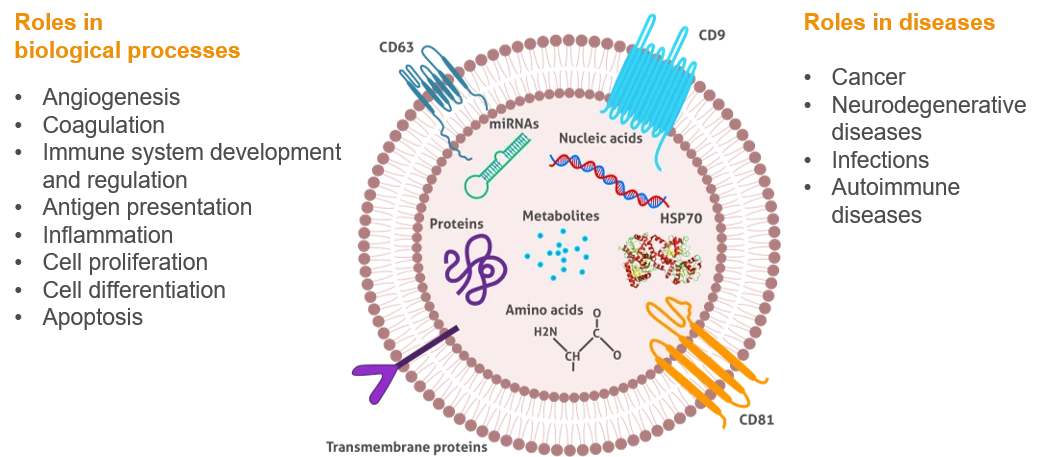
Exosomes are extracellular nanovesicles produced by all cells, measuring around 40 to 160 nm in diameter, and are carriers of nucleic acids, proteins, lipids, and metabolites. These tiny vesicles play a crucial role in intercellular communication, acting as mediators for both nearby and distant cell interactions in both health and disease (modified from Cintio et al; 2020).

Figure 1 from Cintio et al, 2020. The roles and contents of exosomes (modified from Kalluri and LeBleu, 2020).
Exosomes are membrane-bound vesicles that appear round or cup-shaped under a transmission electron microscope [1]. They are formed through a process involving the double invagination of the plasma membrane.
Protein-coding regions make up less than 2% of the mammalian genome. As a result, a large portion of the genome is transcribed as noncoding RNA (ncRNA) (Dysin et al., 2021). Bovine colostrum is rich in noncoding RNA, including MicroRNA (miRNA), small RNA molecules that provide a natural mechanism for transferring genetic material to infants.
A total of 389 miRNAs have been identified in bovine colostrum (Ma et al., 2022). These miRNAs are predicted to target 2,655 genes linked to cellular processes, environmental information processing, and organismal systems. For example, miR-148a, which is highly expressed in bovine milk exosomes, can withstand gastric digestion and be absorbed by intestinal cells.
It downregulates DNA methyltransferase 1, a gene involved in epigenetic regulation.
The expression profiles of miRNA in colostrum are not influenced by the concentrations of immunoglobulin G (IgG) (Ma et al., 2022). This indicates that the presence of miRNA in colostrum remains unaffected by IgG levels. miRNA regulates the expression of bioactive components in colostrum and is concentrated in small extracellular vesicles called exosomes, which shield them from degradation.
MacLeay et al. (2023) recently suggested that certain miRNAs play a role in regulating growth and development from birth to first lactation. Additionally, associations between miRNA levels and various diseases have been observed in livestock. These findings highlight the critical importance of circulating miRNAs in early life.
Bovine colostrum is rich in noncoding RNA, particularly miRNA, which are small RNA molecules. These miRNAs regulate the expression of bioactive components in colostrum and are concentrated in small extracellular vesicles known as exosomes. The levels of miRNA in colostrum remain unaffected by the amount of immunoglobulin G (IgG) present. miRNAs play a role in regulating growth and development from birth to the first lactation and are associated with various disease pathways. Ongoing research aims to further clarify the key functions of miRNA.
Immune Milk is a premium bovine colostrum powder meticulously developed to revolutionize calf health and immunity. It naturally contains all miRNA molecules, which can withstand freezing, dissolving, and pasteurization processes.

Choose Immune Milk today and unlock the potential of nature to nurture healthier and productive calves.
Download the pdf version of the Hot Topic written by our expert Dr. Oguz Calisici, Product Manager Immune milk.
Download the HOT TOPIC (PDF) here >>

Dr. Oguz Calisici studied veterinary medicine in Germany and Turkey. After completing his doctoral Thesis at the University of Hannover, he continued working at the university in the areas of biotechnology and artificial insemination. After working as a practical vet in Germany, Oguz was the managing director of a large dairy company in Turkey. At Phytobiotics, Oguz has taken over the product management of Immune Milk.
Entre em contato com nossos especialistas ou envie uma mensagem. Entraremos em contato o mais rápido possível.